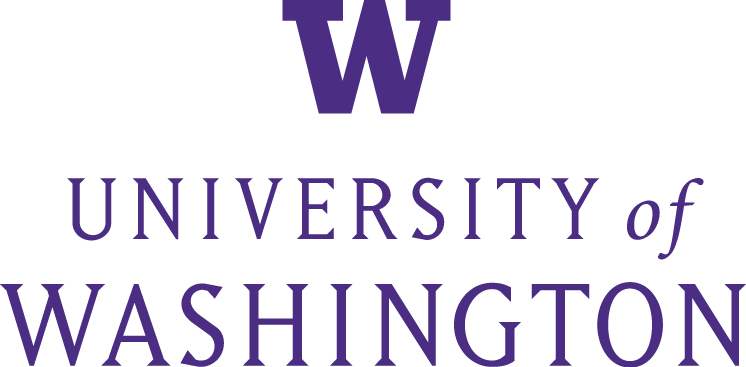University of Washington’s experts named AAAS Fellows 2022
Four University of Washington researchers have been named AAAS Fellows, according to a Jan. 31 announcement by the American Association for the Advancement of Science. They are among 506 new fellows from around the world elected in 2022, who are recognized for their “scientifically and socially distinguished achievements” in science and engineering.
A tradition dating back to 1874, election as an AAAS Fellow is a lifetime honor, and all fellows are expected to meet the commonly held standards of professional ethics and scientific integrity. The new fellows will be celebrated in Washington, D.C., in summer 2023.
This year’s UW AAAS fellows are:
Emily M. BenderCorinne Thrash, University of Washington
Emily M. Bender, professor in the Department of Linguistics, is honored for demonstrating the role of grammar in natural language processing (NLP), extending computational modeling to less-studied languages, and raising ethical issues in NLP – an interdisciplinary field concerned with the interactions between computers and human language. Bender studies the societal impacts of language technology, what it means for research and design of such technology, and how to include it in the NLP curriculum. She’s taught seminars on the topic and in 2021 co-chaired the ethics review committee for the North American Chapter of the Association for Computational Linguistics. Bender’s areas of focus include data documentation and the dangers of specific technology, such as large language models and chatbots used for search. She has worked to make linguistics accessible to computer scientists in NLP, giving tutorials at major conferences and writing two associated books. Bender also studies how computational methods can serve the purposes of linguistic analysis and how linguistic knowledge can be used to improve the performance of natural language processing systems. She has led the development of the LinGO Grammar Matrix, a framework supporting the creation of broad-coverage, precision, implemented grammars for diverse languages. Her other interests include sociolinguistic variation, or the ways speakers manipulate their languages to create style and register.
John Marzluff
John Marzluff, a professor of wildlife science in the UW School of Environmental and Forest Sciences, is honored for advances in our understanding of how humans impact birds, and for communicating the importance of birds to the public. Marzluff’s lab studies the relationship between humans and birds to discover how to best conserve wildlife in our modern, human-dominated world. He focuses primarily on corvids — ravens, crows and jays — but he has also worked with falcons and hawks throughout North America and tundra-nesting birds in the Arctic. Marzluff also is interested in all the ways that birds affect people. He has written a number of books for researchers and lay audiences, including “Welcome to Subirdia” and “In Search of Meadowlarks.” Marzluff is a member of the board of editors for Ecological Applications, member of the U.S. Fish and Wildlife Service’s recovery team for the critically endangered Mariana crow, a fellow of the American Ornithologists’ Union and a National Geographic Society Explorer.
Sean D. SullivanUniversity of Washington
Sean D. Sullivan, professor of pharmacy and of health services, is honored for his work on medical and drug coverage and reimbursement policies, as well as for developing studies to address complex medical questions. Sullivan, who served as the dean of the UW School of Pharmacy from 2014 to 2022, was elected in 2020 to the National Academy of Medicine. He was one of the few people from the pharmacy field named to the academy, among the highest honors in health and medicine. Sullivan is widely recognized for pioneering U.S. guidelines for evidence-based preferred drug lists, also known as drug formularies. With insurers, he created the value-based formulary, which emphasizes a drug’s clinical effectiveness rather than its cost, and was the first health economist to serve on panels for global respiratory guidelines, incorporating economic considerations into recommendations. His research focuses on health technology assessment, medical decision-making, and the economic evaluation of medical technology, including pharmaceuticals. A member of the UW faculty since 1992, Sullivan holds adjunct appointments in the School of Medicine and in the Public Health Sciences Division at the Fred Hutch Cancer Center. Sullivan is currently on sabbatical at the London School of Economics and Political Science, and will return to UW this fall.
Deborah Illman
Deborah Illman is being recognized for excellence in science and technical communication as a practitioner, instructor and mentor, particularly for her dedication to the communication of science to the public. Her research and teaching activities at the UW focused on science communication and media coverage of science and technology. She developed and taught courses for undergraduate and graduate students on writing about science for general audiences as well as on scientific and technical communication. Most recently, she received a Professional Development Fellowship from the National Science Foundation (NSF) to study mental models of audience and decision-making in science and technology communication. Previously, her research on accuracy in science news reporting received support from the NSF Ethics and Values Program in Science, Technology, and Society. Illman also directed the Chemistry Communication Leadership Institute, and in 2006, with funding from an NSF Discovery Corps Senior Fellowship, she focused on communicating about large and long-term multidisciplinary research efforts using the NSF Science and Technology Centers as a case study. Illman is a former Associate Editor of Chemical & Engineering News, the official news publication of the American Chemical Society, and she was founding editor of Northwest Science & Technology.

